11 Sep2019
By Katrina Norfleet
The just released 2019 Data Quality Campaign (DQC) National Poll reports that those closest to students—parents and teachers—are eager for leaders to take actions that reflect a bold vision of data use to improve student outcomes in K–12 and beyond. The findings, released on September 10, show that 90% of parents say they need data to understand their child’s progress and help them do their best. Of the teachers who were polled, 86% believe using data is an important part of being an effective teacher.
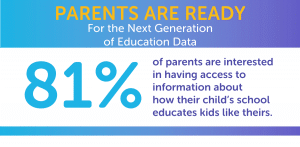
In the brief, Parents are Ready for the Next Generation of Education Data, data show that parents believe student journeys don’t end with K–12. Parents see
09 Sep2019
By Cyndy Crist
 In recent years, the Minnesota Association of Colleges for Teacher Education (MACTE) has been working to engage our members throughout the legislative process so that our ideas, issues, and knowledge can help inform the development and enactment of policies in the state. Whenever possible, we tap their expertise in shaping legislative priorities; responding to legislative, agency, and executive branch requests; attending and, when possible, testifying at legislative hearings; collaborating with other educational organizations on issues of mutual interest and concern; and interacting directly with legislators and their staff.
In recent years, the Minnesota Association of Colleges for Teacher Education (MACTE) has been working to engage our members throughout the legislative process so that our ideas, issues, and knowledge can help inform the development and enactment of policies in the state. Whenever possible, we tap their expertise in shaping legislative priorities; responding to legislative, agency, and executive branch requests; attending and, when possible, testifying at legislative hearings; collaborating with other educational organizations on issues of mutual interest and concern; and interacting directly with legislators and their staff.
09 Sep2019
By Linda Minor

The 2020 AACTE Annual Meeting in Atlanta, GA is an opportunity to learn and engage with fellow attendees and join in this unified effort to disrupt inequities while educating for inclusion and change. When the meeting is not in session, you will want to explore the southern charm Atlanta has to offer — from fine dining, shopping and rich history to inspiration-inducing attractions.
All AACTE events (Opening and Closing Sessions, Learning Labs, Deeper Dives) will take place in the Atlanta Marriott Marquis Hotel. The downtown hotel is only steps away from many attractions:
09 Sep2019
By Joanne Van Boxtel and Heather Taylor Wizikowski

This article and photo originally were originally published in SmartBrief Education and are reprinted with permission.
We all know the numbers are sobering. A 2018 brief from the Council for Exceptional Children showed critical shortages of special education teachers in 48 states and the District of Columbia. Fifty-one percent of all school districts and 90% of high-poverty school districts report difficulty recruiting highly qualified special education teachers. The exit rate for special education teachers is nearly twice that of general education teachers and enrollment in teacher training programs has declined by 35% over the previous five years.
It seems a dismal picture, but there is light at the end of the tunnel — one that prepares teachers to enter this dynamic field and equips them with tools to help them skillfully and confidently persist in the profession.
09 Sep2019
By Jane E. West
This blog post is written by AACTE consultant Jane West and is intended to provide update information. The views expressed in this post do not necessarily reflect the views of AACTE.
Money, Money Money … Follow the Money … to a Shutdown?
Congress does not officially reconvene until Monday, September 9. They return to the challenge of funding the government before the end of the Fiscal year, September 30. This means that in 13 legislative days the Senate would have to pass 12 separate funding bills, conference each one with the House and then secure President Trump’s signature on each one. What are the odds of that happening? Well, I’m not really a betting person, but I’d say “zero.”
The House left town in August having passed its funding bills, including a very generous one for
06 Sep2019
By Ward Cummings

As states work to allocate funding for school districts, they must take into account the various needs and populations of the students they serve. The Education Commission of the States (ECS) has developed a resource, “50-State Comparison: K-12 Funding” that helps clarify and compare each state’s school funding mechanisms, organized by method and category.
Visit the ECS webpage to review data describing the funding mechanisms of the states as well as the specific funding allocations for a list of funding priorities, including special education, English language learning and at-risk and low-income students.
As elementary and secondary teachers head back into their classrooms, conversations on teacher shortages, teacher salaries, and teacher strikes continue. Having an understanding of how your state funds its K-12 schools can help you support the schools in which your graduates will teach and engage in democracy on this critical issue.
05 Sep2019
By Deborah Koolbeck

As AACTE members and their colleagues return to the classroom, Congress returns to Washington, D.C., after the August recess. It is a crowded agenda for the fall as discussions heat up around the 2020 Census and the election. The U.S. House of Representatives (House) has passed nearly all 12 of its appropriations bills, and the U.S. Senate (Senate) is poised to start the week of September 9, 2019.
This leaves us with several questions:
- With 15 legislative days before the September 30 deadline, will any of the Senate bills be completed?
- With a Continuing Resolution expected, will it go through November or December?
- While the caps were raised for Fiscal Years 2020 and 2021, will the Labor, Health and Human Services, Education and Related Agencies bill receive a sufficient increase to not only raise the NIH budget by $2b, but also maintain the increases the House appropriated to key programs that support the profession?
- Beyond funding, what is the status of the reauthorization of the Higher Education Act?
These questions and more will be covered in the AACTE September 2019 Federal Update webinars. To accommodate teaching schedules and time zones, this member exclusive update is offered on two different days and at two different times. In addition, the webinar is recorded and will be posted on AACTE’s Advocacy Center’s federal page. Use the links below to register today for the time that works best for you!
Tuesday, September 24, 5:00 p.m. – 6:00 p.m. EDT
Wednesday, September 25, 11:00 a.m. – 12 noon EDT
05 Sep2019
By Lynn M. Gangone
Earlier this week, I published an article about the recent PDK Poll results, which depict teachers’ opinions and the realities of what is happening in our public schools. In the face of challenging times, AACTE members remain committed to educating students to become teachers, as well as change agents, wherever they serve. Our work includes developing teacher leaders to be role models and mentors so they can affect the change we need in our schools and communities.
Please take a few minutes to watch the video below (or read the transcript) and discover more about AACTE’s work to promote teacher leaders. We would like to hear from you! I invite you to share how your educator preparation program is working to produce teacher leaders. Email us at communications@aacte.org.
03 Sep2019
By Katrina Norfleet
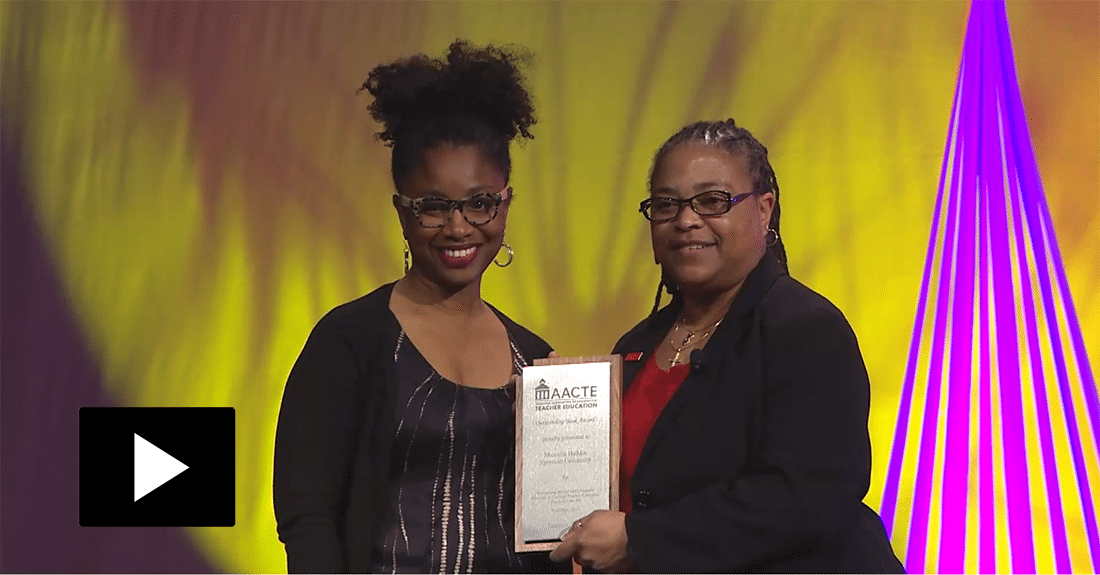
Each year, the AACTE Awards program honors individual members for their significant contributions to the profession in nine categories, which includes the Outstanding Book Award. This award recognizes exemplary books that make a significant contribution to the knowledge base of educator preparation or of teaching and learning with implications for educator preparation. The AACTE Committee on Research and Dissemination oversees the award process and selects the winning book and its author/editor(s). This year’s awardee(s) will receive special recognition at AACTE’s 72nd Annual Meeting in Atlanta, GA, February 28 – March 1, 2020.
The video above features the 2018 AACTE Outstanding Book Award recipient, Marcelle Haddix, Dean’s Professor and chair of the Reading and Language Arts department in the Syracuse University School of Education, where she is an inaugural co-director of the Lender Center for Social Justice. Haddix was recognized for her book, Cultivating Racial and Linguistic Diversity in Literacy Teacher Education: Teachers Like Me. The book examines how English and literacy teacher education—
30 Aug2019
By Lynn M. Gangone
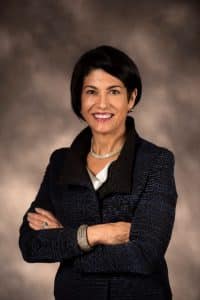 While serving on this year’s (Phi Delta Kappan) PDK Poll Advisory Board, I listened and collaborated with scores of thought leaders in the education ecosystem—The National Education Association, The Learning Policy Institute, The Learning First Alliance, The Gay, Lesbian and Straight Education Network, among others. We determined what approaches to take to quantify, understand, and disseminate the vast amount of information and data garnered from this extremely worthwhile and useful poll. We discussed the results and how they could be utilized to advance 21st century classrooms, its students, and those who lead them.
While serving on this year’s (Phi Delta Kappan) PDK Poll Advisory Board, I listened and collaborated with scores of thought leaders in the education ecosystem—The National Education Association, The Learning Policy Institute, The Learning First Alliance, The Gay, Lesbian and Straight Education Network, among others. We determined what approaches to take to quantify, understand, and disseminate the vast amount of information and data garnered from this extremely worthwhile and useful poll. We discussed the results and how they could be utilized to advance 21st century classrooms, its students, and those who lead them.
What is the importance of the PDK Poll?
This year’s PDK Poll was entitled, “Frustration in The Schools: Teachers Speak Out on Pay, Funding, and Feeling Valued.” The new release is one of several polls PDK has conducted to examine opinions on public education for more than 50 years. The poll, according to PDK, is “a steady reflection of U.S. opinion about public education.” Its results are meaningful because they offer an annual review of one of the most important parts of our society—public schools, and focuses on of some our nation’s most crucial people—teachers. The poll measures opinions on the value of a public-school education and its teachers while giving us a sense of how our schools are supported, or more importantly, how they are not supported. It gives us a hypothetical picture of what the future of the educational world might hold and enlightens us about current issues from the perspective of the public. It informs and helps us contemplate how students are changing and what we, as educators, need to do to support and foster
29 Aug2019
By John Henry
This article originally appeared on the WUSA 9 website and is reprinted with permission.
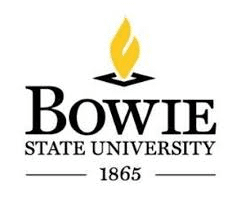
If you look inside many of America’s classrooms, you’ll notice someone is missing: black male teachers.
According to the latest data from the U.S. Department of Education, only 2% of the country’s teaching workforce are black males.
The phenomenon has not been lost on educators like Bowie State University professor Julius Davis. He recently undertook an effort to increase the number of black male teachers that can be found in DMV classrooms.
The University System of Maryland awarded Davis a $44,000 grant to operate a center at Bowie State that specializes in the research and mentorship of black male students and teachers.
29 Aug2019
By Genesis Gonzalez
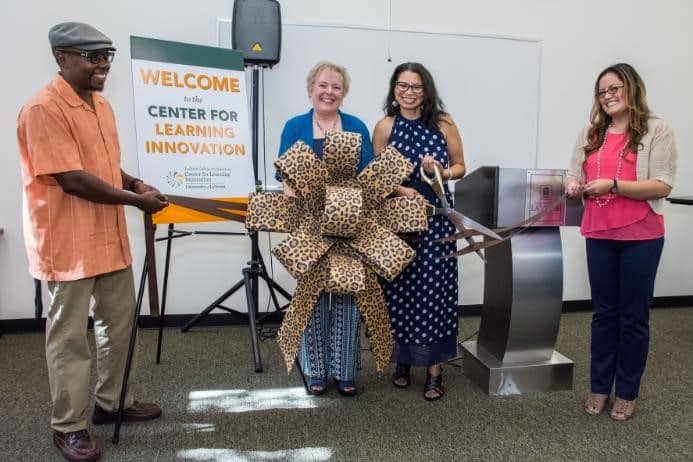
This article and photo originally appeared on the University of La Verne website and are reprinted with permission.
The University of La Verne’s LaFetra College of Education welcomes the new Center for Teacher Leadership & Learning Innovation, a first-of-its-kind lab, designed to support and train educators from across Los Angeles County and the Inland Empire in 21st-century learning competencies.
“As a College of Education, which prepares community and school leaders, support providers and teachers, it is imperative that our faculty be
29 Aug2019
By Linda Minor

Were you planning to submit an application for the Outstanding Dissertation Award but missed the deadline? You’re in luck! The deadline has been extended until Friday, September 13.
This award recognizes excellence in doctoral dissertation research (or its equivalent) that contributes to the knowledge base of educator preparation or of teaching and learning with implications for educator preparation. Overseen by AACTE’s Committee on Research and Dissemination, the award includes a $1,000 cash prize, as well as special recognition at AACTE’s 72nd Annual Meeting in Atlanta, GA, February 28 – March 1, 2020.
29 Aug2019
By Mary Murray

As the school year gets underway and state chapter fall meetings start up, remember it’s also election season. Now is the time to nominate yourself or a colleague to serve on the Advisory Council of State Representatives (ACSR) Executive Committee. If you are an immediate past-president, president, or current ACSR liaison and want to expand your service to the national level, this is an opportunity for you. We are seeking nominations for three open positions: The chair-elect, South Region representative, and Midwest Region representative.
The chair-elect fulfills a 3-year commitment, transitioning from chair-elect, to chair, to past-chair. During this 3-year period, the chair-elect also serves on the AACTE Board of Directors with all the associated requirements and duties, representing
29 Aug2019
By Jerrica Thurman
Members of AACTE’s Committee on Meetings and Professional Development took time a few weeks ago to share their views about how the Annual Meeting strengthens educator preparation! Watch the short videos below to learn more about the topics attendees should look forward to exploring during AACTE’s 2020 Annual Meeting, February 28-March 1, in Atlanta, GA. Here are a few highlights from the committee:
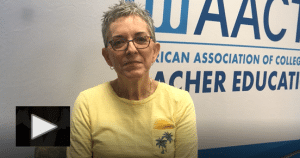 “I have been a participant of AACTE’s conferences for many years… The conferences provide us an opportunity to join experts in the field and colleagues…to learn from each other, share ideas and strategies, and reinvigorate ourselves,” said
“I have been a participant of AACTE’s conferences for many years… The conferences provide us an opportunity to join experts in the field and colleagues…to learn from each other, share ideas and strategies, and reinvigorate ourselves,” said



 In recent years, the Minnesota Association of Colleges for Teacher Education (MACTE) has been working to engage our members throughout the legislative process so that our ideas, issues, and knowledge can help inform the development and enactment of policies in the state. Whenever possible, we tap their expertise in shaping legislative priorities; responding to legislative, agency, and executive branch requests; attending and, when possible, testifying at legislative hearings; collaborating with other educational organizations on issues of mutual interest and concern; and interacting directly with legislators and their staff.
In recent years, the Minnesota Association of Colleges for Teacher Education (MACTE) has been working to engage our members throughout the legislative process so that our ideas, issues, and knowledge can help inform the development and enactment of policies in the state. Whenever possible, we tap their expertise in shaping legislative priorities; responding to legislative, agency, and executive branch requests; attending and, when possible, testifying at legislative hearings; collaborating with other educational organizations on issues of mutual interest and concern; and interacting directly with legislators and their staff. 




 While serving on this year’s (Phi Delta Kappan) PDK Poll Advisory Board, I listened and collaborated with scores of thought leaders in the education ecosystem—The National Education Association, The Learning Policy Institute, The Learning First Alliance, The Gay, Lesbian and Straight Education Network, among others. We determined what approaches to take to quantify, understand, and disseminate the vast amount of information and data garnered from this extremely worthwhile and useful poll. We discussed the results and how they could be utilized to advance 21st century classrooms, its students, and those who lead them.
While serving on this year’s (Phi Delta Kappan) PDK Poll Advisory Board, I listened and collaborated with scores of thought leaders in the education ecosystem—The National Education Association, The Learning Policy Institute, The Learning First Alliance, The Gay, Lesbian and Straight Education Network, among others. We determined what approaches to take to quantify, understand, and disseminate the vast amount of information and data garnered from this extremely worthwhile and useful poll. We discussed the results and how they could be utilized to advance 21st century classrooms, its students, and those who lead them.



